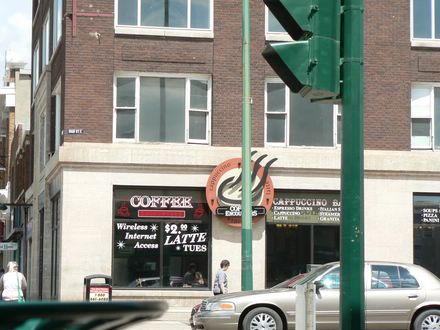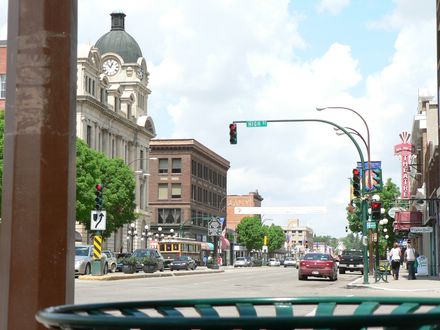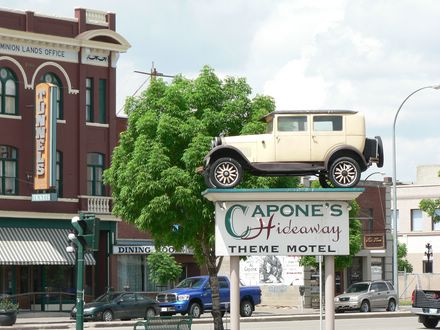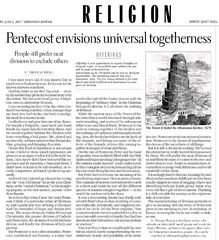When my father bought the Springside General Store in or around 1963, our family moved into the two-story living space at the back of the store.
The area upstairs, which was essentially a part of the attic walled off, contained a sitting space and two bedrooms. The bedrooms, with curtains for doors, had trouble containing a bed and a dresser, and the "anteroom" just managed a desk and some book cases.
My little sister and I soon found the rest of the attic. We pried loose a square of painted plywood beside the railing-less stairwell and getting down on hands and knees we squeezed into a crawl space that lead to the larger part of the attic on the other side of the wall.
Among the clutter, under a cover of dust and old newspapers were several cardboard boxes. Most were filled with "store stuff," record sheets in rubber bands, receipt books and rolled up soft cover ledgers. But one small box was full of letters. I anticipated reading the deep troubling, perhaps even frightening secrets of strangers to my pre-school sister. But lifting out the envelopes and pulling out the letters I discovered they were all in Chinese.
The consolation was imagining all the characters or symbols as coded messages in plots of espionage. It was around this time when I told my mother I was going to be a detective. I kept a few of the letters in my room for awhile until the game got old.
The store was one of the oldest in town. At the time I had no idea how much of a struggle it would have been for a Chinese immigrant to become its proprietor during this early history. Perhaps all those letters told the story. I would never know.
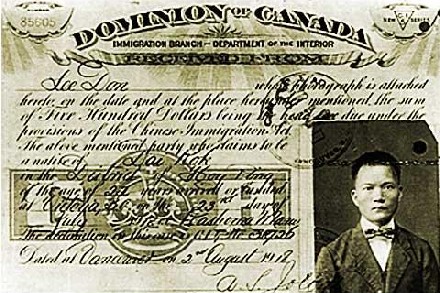 |
But we all know now that the early history of the Chinese people in Canada was tragic. After the CPR was built by exploited Chinese labour a head tax was imposed by the Canadian government to discourage any further immigration. The tax was subsequently raised in hopes that–not being able to bring family members over–the Chinese would emigrate back to China. The racist attitude was singularly evident in the fact that the Chinese were the only ethnic group that had to pay a Head Tax to enter Canada.
Still later, the Chinese Immigration Act of 1923, referred to now as the Chinese "Exclusion" Act, barred Chinese immigration out right.
Too little, too late; in June of 2006, Prime Minister Harper offered an apology and compensation only for the head tax once paid by Chinese immigrants. Survivors or their spouses will be paid approximately $20,000 in compensation. There was an estimated 20 Chinese Canadians who paid the tax still alive in 2006. The Canadian government collected over 1.2 billion dollars (calculated in 1980’s dollars, when the redress effort began in earnest) in "head tax."
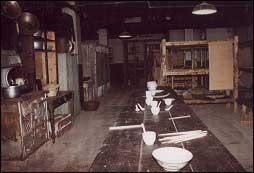 |
It’s a credit to the Moose Jaw "tunnel tour" that it doesn’t shrink from telling this story and exposing the racist attitudes of our recent ancestors.
Prior to Prohibition, the vast basements under the hotels and a few early tunnels were the "sunless domain of Chinese immigrants who lived and toiled in steam laundries and gunny-sack factories." Here and places like this is where many travailed for meager wage, but still saved money for the "head tax" required for Canadian citizenship.
The story is told here in the "Passage to Fortune" tour. As the flyer says, "It’s an honest and moving presentation that pulls few punches in dealing with the racist attitudes in North America 100 years ago, and how Chinese Canadians rose above them to find happiness and prosperity."
Technorati Tags: Moose Jaw Tunnels, Chinese Head Tax, Springside General Store, Politics, Poverty

